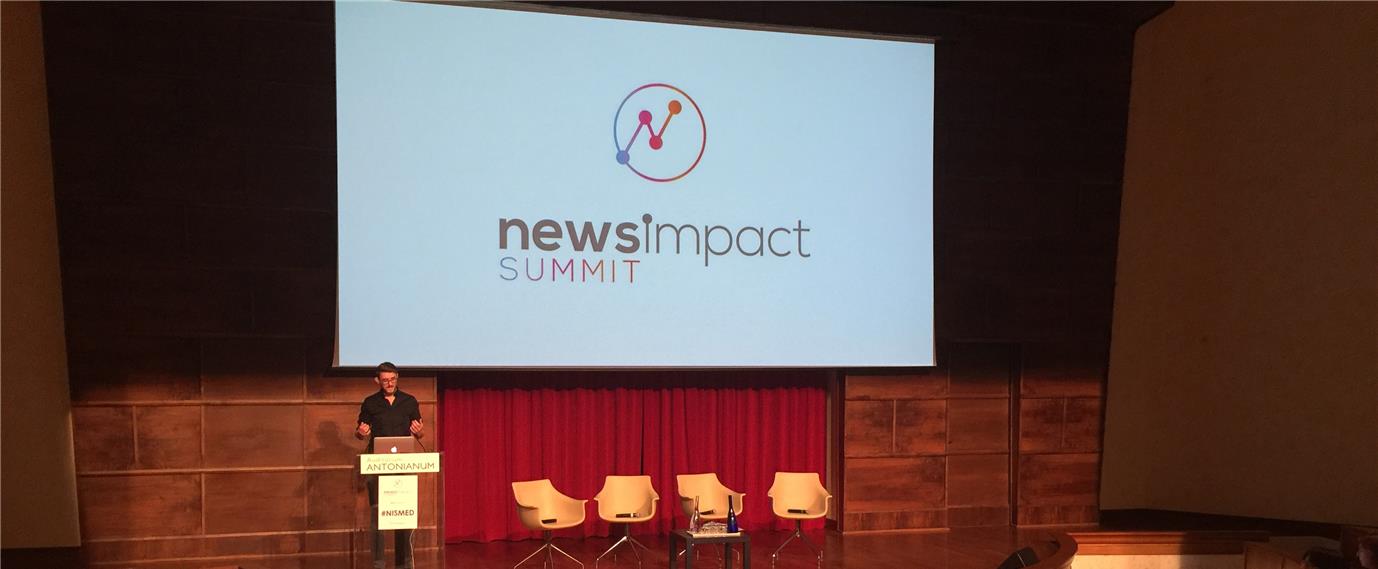اجتمع المشاركون في قمة التأثير والإعلام المنعقدة في العاصمة الإيطالية، روما، الأسبوع الماضي - ومعظمهم يعملون في وسائل إعلامية أوروبية- اجتمعوا على اصطدامهم بالعائق المادي في عملهم، سواء أكان ذلك في المؤسسات العريقة أو في المؤسسات الصحفية الصغيرة. وكان من أهم المواضيع التي طرحتها القمة، "تحديات وفرص بناء الثقة بالتقنيات الجديدة". وأوضحت الصحفية إستر ألونسو من صحيفة "إلدياريو" الإسبانية، أنهم فتحوا الباب في صحيفتهم أمام تجريب طرق متعددة لرواية القصة الخبرية، بهدف أن يختار القارئ الطريقة الأمثل له في استهلاك المضمون، فالبعض يحبذ النص وآخرون الفيديو أو الإتفوغراف، وهكذا. كما تعمل الصحيفة اليوم على تشجيع القراء على التفاعل من خلال رسائل الفيديو. وقد أشارت ألونسو إلى خيار الصحف في اعتبار القارئ "زبونا" أم "شريكا"، إذ يساهم الخيار الثاني في استقلالية الصحافة.. الهاجس الدائم لدى المؤسسات الصحفية. وأكدت ما تحدث به مشاركون آخرون من خطورة التعامل مع المحتوى الذي ينتجه المستخدمون على مواقع التواصل الاجتماعي، إذ يحتاج لخطوات كبيرة من التحقق.
وتحدثت صوفي كاسال، وهي صحفية فرنسية تعمل في مؤسسة "نيس ماتان" التي تهتم بما يسمى "صحافة الحلول"، تحدثت عن تلك التجربة الجديدة التي أنشأها فريق صغير من الصحفيين بموارد مالية متواضعة، معتمدين على "إشراك" الجمهور في "اللعبة"، عن طريق التفاعل معهم ومعرفة القضايا التي يرغبون بطرحها.
خليط من الصحفيين والتقنيين
من ضمن التحديات المطروحة كانت خلفية الصحفيين التقنية. وللخروج من تلك المعضلة، باتت المؤسسات الصحفية تدمج في العمل تقنيين لمساعدة الصحفيين في استخدام التكنولوجيا في رواية القصص الخبرية. كاسال أكدت أنه لا يوجد صحفي عالم بكل شيء وأنهم أدركوا ذلك في صحيفتهم فعمدوا إلى تقسيم العمل بين الصحفيين والتقنيين للوصول إلى نتائج مرضية.
نقص التمويل في معظم المؤسسات الصحفية جعلها تتجه لاستخدام المصادر الأقل كلفة للحصول على الأخبار، منها استخدام الهاتف المحمول في التغطيات الخبرية، والتعاقد مع وكالات أنباء عالمية أو محلية فضلا عن وسائل التواصل الاجتماعي، إلا أن كل ذلك لا يعتبر بديلا عن وجود تغطية ميدانية.
أما ألونسو، فقد قالت إن الابتكار في صحيفة "إلدياريو" التي تعمل بها هو من مسؤولية الجميع، ولذلك ليس هناك من تقسيمات داخل فريق العمل لديهم ما بين صحفيين وتقنيين، إذ على كلِّ فردٍ أن يكون مبدعا ومبتكرا وجاهزا لإيجاد الحلول التي يتعاون الفريق بأكمله لتحقيقها.
تغيير العقلية
المشاركون في قمة التأثير والإعلام كانوا من مؤسسات إعلامية مختلفة ومن أعمار مختلفة. الكثير منهم بدأ العمل منذ عقود في الصحافة، وآخرون في مقتبل العمر والعمل، بيد أن الجميع مستمر في نقاش الأدوات الجديدة التي تخدم عملهم الصحفي. ولم يكن هذا الأمر ليتم بالنسبة للجيل القديم، إلا بعد جهود مبذولة أولا لإقناع أنفسهم بالمضي نحو المستقبل، وإيمانهم أن التمسك "الأعمى" بالوسائل الصحفية التقليدية سيزيد الأمور تعقيدا. آدم توماس، منظم أعمال القمة وهو صحفي شاب يعمل في مركز الصحافة الأوروبي قال إنهم عقدوا القمة 10 مرات خلال العام الماضي (2016)، وسينتهي العام 2017 بخمس قمم لمواصلة الحوار حول كل ما يستجد من تحديات في عالم الصحافة للاستفادة من التجارب المختلفة ولتبادل الخبرات، وإن هذا الحوار لم ينجح إلا لإيمان المؤسسات الإعلامية بضرورة تغيير العقلية والانفتاح على ما هو جديد بشكل ممنهج مدروس.







































